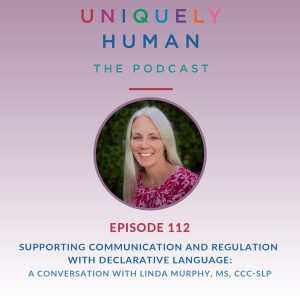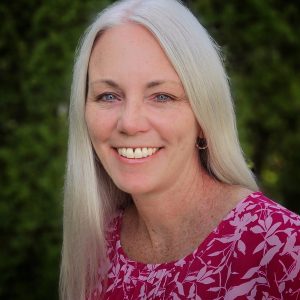
EPISODE 112
Supporting Communication and Regulation
with Declarative Language:
A Conversation with Linda Murphy, MS, CCC-SLP
Supporting Communication and Regulation
with Declarative Language:
A Conversation with Linda Murphy, MS, CCC-SLP
Play the Episode…
Show Notes
A great deal of attention is given to different treatment approaches for supporting communication and relationships with children with social learning differences. However, how we actually speak to children in therapeutic and every day interactions, is given relatively less attention. Through her publications and presentations, Linda Murphy has devoted much of her recent work to supporting therapists, educators, and parents in providing more facilitative styles of language that have been shown to support language development and trusting relationships. In discussing the concept of “declarative language” with Barry and Dave, Linda provides specific guidelines and examples that will be helpful to both professionals and parents.
Learn more about Declarative Language on their website
Follow on Instagram
On Facebook
Featuring
